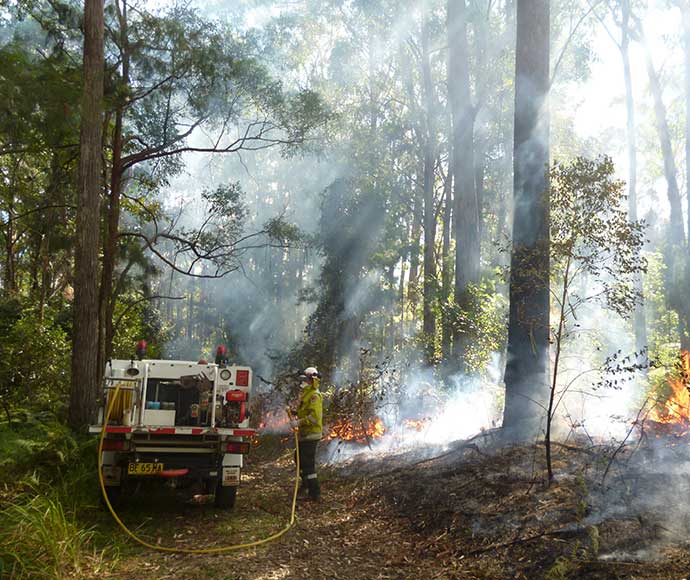The NSW National Parks and Wildlife Service (NPWS) is undertaking several hazard reduction burns in the North West over the next few days.

NPWS Team Leader Rangers Peter Berney said the burns were aimed at reducing fuel loads.
"We are taking advantage of predicted favourable weather conditions to schedule planned burns from Biddon to Terry Hie Hie.
"These burns are among the many that we are working hard to carry out in national parks across the region during winter.
"While they are being scheduled now due to the favourable predictions for weather and wind, if you are vulnerable to smoke, we encourage you to stay indoors and keep your doors and windows closed to reduce any possible exposure," Mr Berney said.
Hazard reductions in the region underway or planned in next few days include;
- 670 hectare Yarrigan West burn commences today (Friday) with further burning, mop up and patrol continuing over the next few days. NPWS crews will be working within Yarrigan National Park about 10km south of Baradine and 10 north of Bugaldie.
- A burn in the northern section of Terry Hie Hie Aboriginal Area near Inverell will be conducted over Saturday 30 July and Sunday 31 July and is centred in the Ash Rd area of the park. The community of Terry Hie Hie is not expected to see smoke impacts.
- A 500 hectare burn in Biddon State Conservation Area (SCA) near Gilgandra starts Saturday 30 July and will continue into Monday 01 August 2022 if required. NPWS crews are working 5km east of Biddon and about 20 km north of Gilgandra, with smoke possibly impacting nearby roads including the Newell Highway and from the village of Biddon depending on the wind.
- 660 hectares in Pilliga West State Conservation Area starts 31 July until 1 August. Approximately 7kms north west of Gwabegar. A partial park closure is in place.
Hazard reduction burns are essential to reduce bushfire fuel loads to help protect the parks, neighbours and communities from future bushfires.
All burns across NSW will continue to be coordinated with the NSW Rural Fire Service (RFS) to ensure the impact on the community, including from smoke, are assessed at a regional level.
For health information relating to smoke from bush fires and hazard reduction burning, visit the NSW Health website or the Asthma Foundation.






